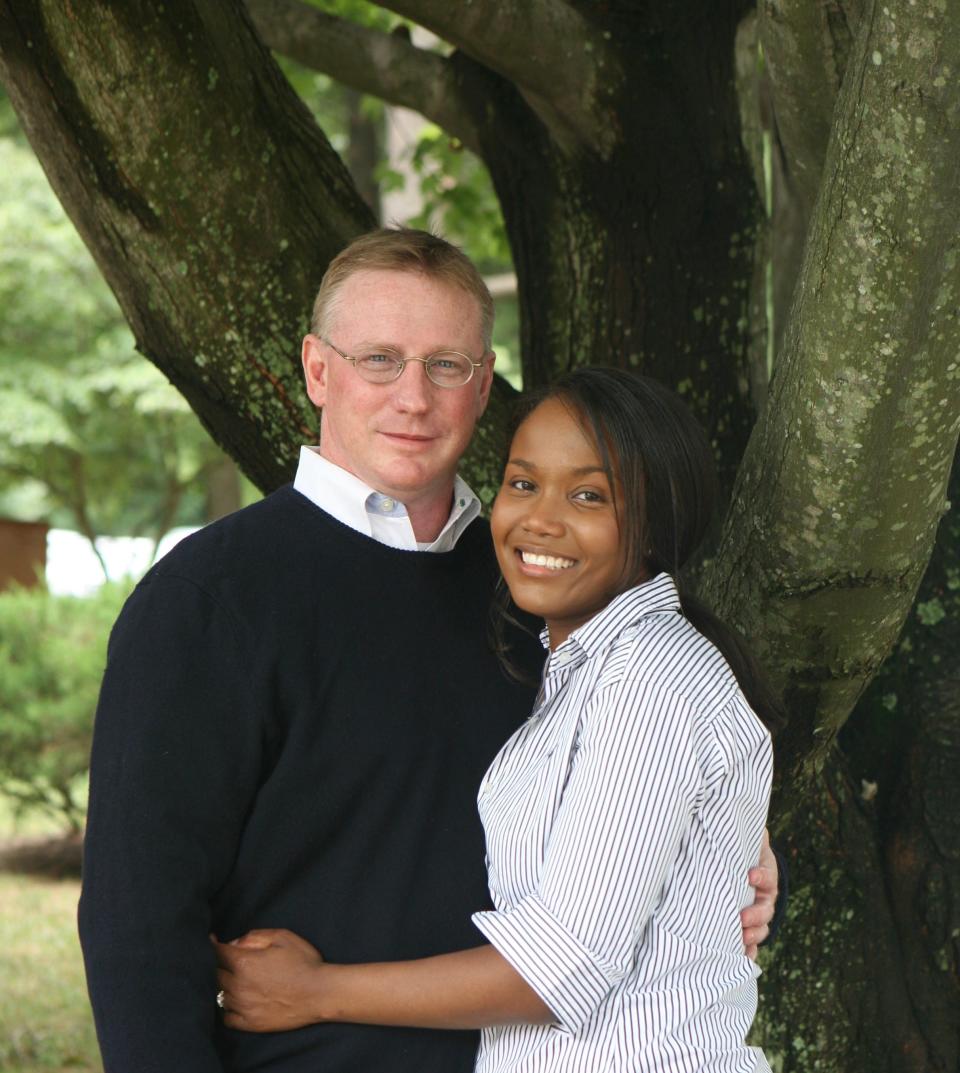My husband died by suicide after Jan. 6. His line-of-duty death deserves to be honored.
This column contains discussion of suicide. If you or someone you know might be struggling with suicidal thoughts, you can call or text the 988 Suicide & Crisis Lifeline at 988 or 1-800-273-8255, or chat online at 988lifeline.org
As we face a rash of law enforcement suicides, it is time that we recognize the psychological toll of wearing the badge and honor the sacrifices of those officers who take their own lives.
For 15 years, my husband, Howard “Howie” Liebengood, was proud to serve as a U.S. Capitol police officer. He was dedicated to his work, enjoyed his connections with the community and was fond of his co-workers.
I could not have asked for a more loving or attentive husband. Even after nine years of marriage, he would send me messages of affection and joy nearly every day.
Opinions in your inbox: Get exclusive access to our columnists and the best of our columns
Jan. 6 Capitol riot changed everything for my husband
All that came to an end following his shift on Jan. 6, 2021, the day Howie was assigned to exterior patrol for the Senate office buildings during the height of the violent protests at the U.S. Capitol.
When Howie came home that night after a 15-hour shift, he recounted an upsetting interaction with a protester he approached, thinking he needed assistance, only to be given a Nazi salute and shouted at in German. Howie was disgusted by the attack on an institution that meant so much to him, but this particular exchange, in the shadow of the Capitol, obviously bothered him.
Following his 15-hour shift, Howie got two hours of sleep before returning to work.

The next day, Jan. 7, after more than 11 hours into his shift, Howie’s police cruiser was involved in a collision that caused him to briefly lose consciousness. The required paperwork forced him to extend his shift to 15 hours, all while functioning on only two hours of sleep.
By Jan. 8, some of his colleagues noticed that he seemed tired and quieter than usual.
When he returned home on Jan. 9, after yet another 12-hour shift, he was distant. Normally ravenous after a shift, he barely touched his dinner.
He was scheduled to return the next day for another 12-hour shift, but he never made it. That night, he died by suicide using his service weapon.
Howie’s story isn’t unique. Law enforcement is a dangerous profession. Job-related stress, trauma, physical demands and long hours have real psychological consequences.
Policing mental health: Police can't handle mental health crises on their own. Reform is critical for public safety.
'Where has this training been all my life?' How healing trauma could actually reform policing
Police face significantly higher risk of suicide
Police officers face a 54% greater risk of suicide than the general population. Last year, 180 officers took their own lives, nearly three times the number shot and killed in the line of duty.
Repeated studies by the Ruderman Family Foundation found that police officers and firefighters are more likely to die by suicide than in all line-of-duty causes combined. Nevertheless, police departments are reluctant to talk about officer suicides, and only a few of them have suicide-prevention programs.
While the stresses are relentless, cops are supposed to be “tough.” The perceived stigma surrounding mental health problems, and the fear of being labeled “unfit for duty,” keeps many officers from seeking help.
Opinion alerts: Get columns from your favorite columnists + expert analysis on top issues, delivered straight to your device through the USA TODAY app. Don't have the app? Download it for free from your app store.
Howie’s was the first death claim made pursuant to the newly enacted Public Safety Officer Support Act, which finally recognizes that in many cases, like Howie’s, law enforcement suicides are indeed service-connected and should be seen as what they are – deaths in the line of duty.
My husband died defending democracy: My husband's suicide after Jan. 6 riots was a line-of-duty death. He deserves recognition.
Taking action after Jan. 6 deaths: As police memorial adds names, union urges inclusion of officers who died by suicide
The Labor Department's Federal Employees' Compensation Program also recognized Howie’s death as being work-related, the first such suicide-related claim approved. Earlier this year, the U.S. Capitol Police also officially recognized his death as being in the line of duty.
Nevertheless, the stigma surrounding police officer suicides is intractable – and dangerous.
Since 1984, for instance, the National Law Enforcement Officers Memorial Fund has honored the names of fallen officers, but the memorial still does not include the names of officers, like Howie, who died by suicide in the line of duty. It’s time to change the policy.

One of the pillars of the Memorial Fund is officer safety and wellness. We must ask whether this policy reflects the safety and wellness of those officers who fall victim to psychological stress.
The Memorial Fund is dedicated to honoring fallen officers and to making it safer for those who continue to serve. It is time the memorial honor those who served and sacrificed alone and in silence.
Dr. Serena McClam Liebengood is a radiologist in Bethesda, Maryland.
You can read diverse opinions from our Board of Contributors and other writers on the Opinion front page, on Twitter @usatodayopinion and in our daily Opinion newsletter. To respond to a column, submit a comment to letters@usatoday.com.
This article originally appeared on USA TODAY: Police face higher risk, rate of suicide. End LEO mental health stigma

